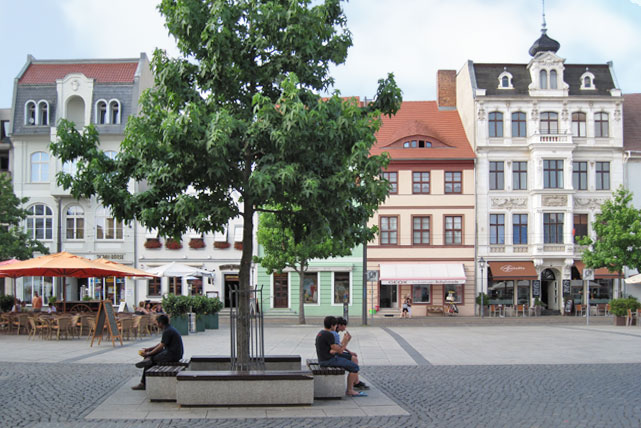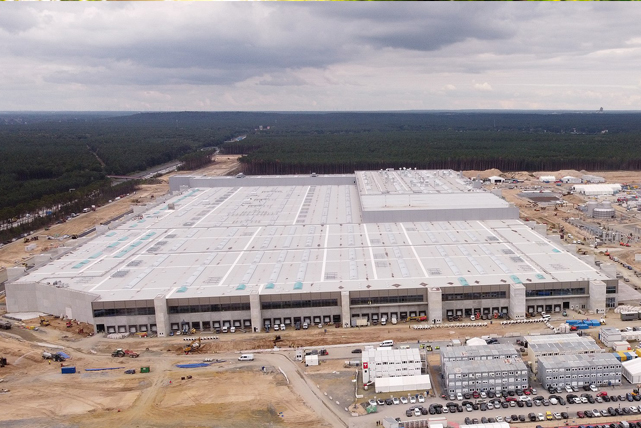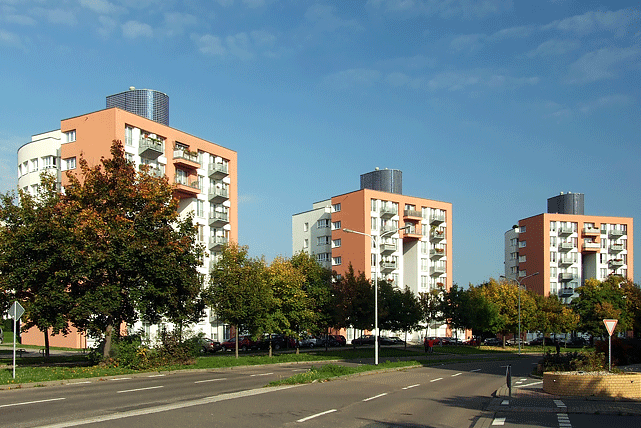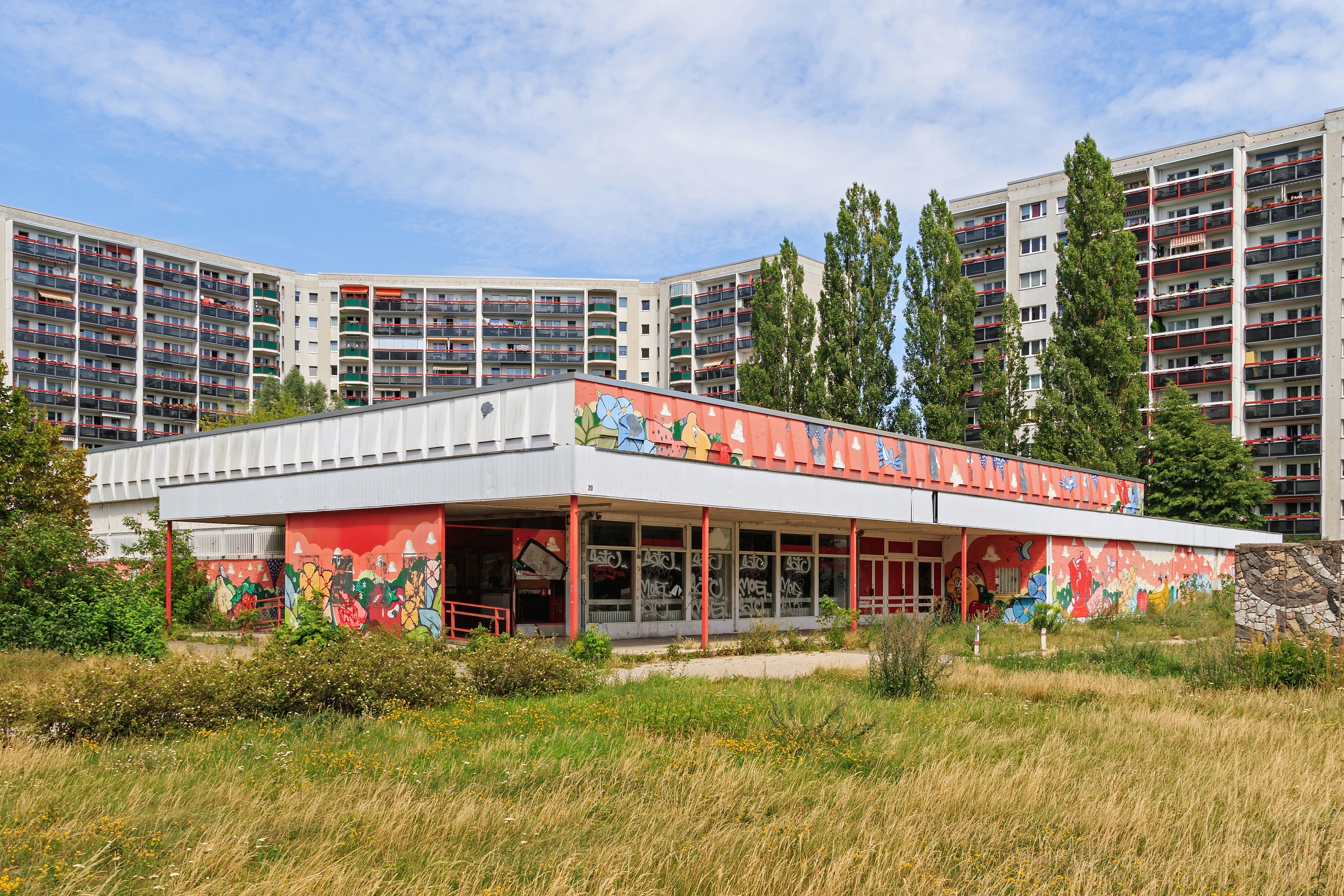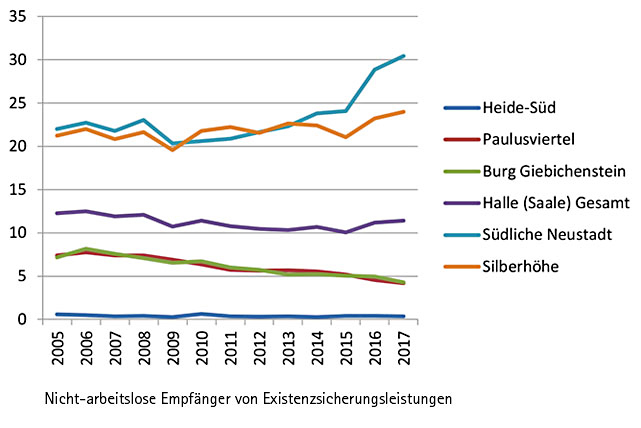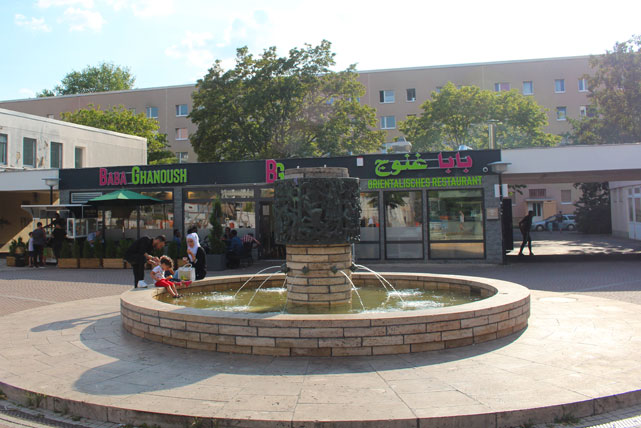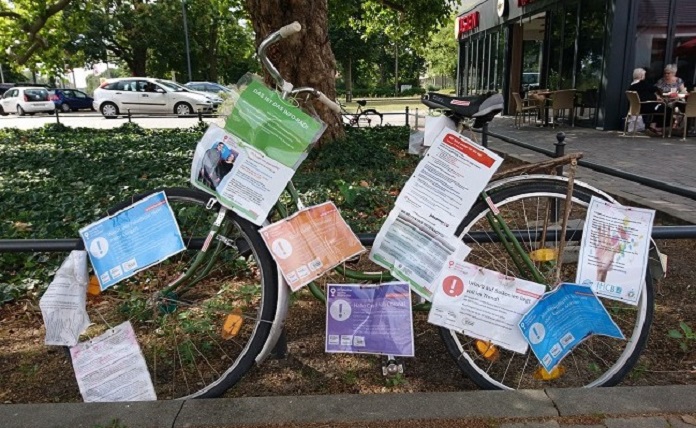Bernt, M., & Holm, A. (2021). Veränderungen der Eigentümerstrukturen auf ostdeutschen Wohnungsmärkten nach 1990. In I-S. Kowalczuk, F. Ebert, & H. Kulick (Eds.), (Ost)Deutschlands Weg: 45 Studien und Essays zur Lage des Landes. Teil I - 1989 bis heute (pp. 509-529). (Schriftenreihe der Bundeszentrale für politische Bildung; No. 10676). Bundeszentrale für Politische Bildung.
Bernt, M. (2021).
Die Grenzen der rent-gap Theorie. In J. Glatter, & M. Mießner (Eds.),
Gentrifizierung und Verdrängung: Aktuelle theoretische, methodische und politische Herausforderungen (pp. 91-106). (Interdisziplinäre Wohnungsforschung; Vol. 3). Transcript.
https://doi.org/10.14361/9783839455821
Bernt, M. (2020). Die Herausforderer der Behutsamen Stadterneuerung. In S. Schipper, & L. Vollmer (Eds.), Wohnungsforschung: Ein Reader (pp. 373-392). (Interdisziplinäre Wohnungsforschung; No. 2). Transcript.
Bernt, M. (2020). Gentrifizierung zwischen Universalismus und Partikularismus. In I. Breckner, A. Göschel, & U. Matthiesen (Eds.), Stadtsoziologie und Stadtentwicklung: Handbuch für Wissenschaft und Praxis (pp. 404-414). Nomos.
Bernt, M. (2019). Sonderfall Südpark? In P. Pasternack (Ed.), Kein Streitfall mehr?: Halle-Neustadt fünf Jahre nach dem Jubiläum (pp. 79-90). Mitteldeutscher Verlag.
Hillmann, F., Bernt, M., & Calbet Elias, L. (2019).
Von den Rändern der Stadt her denken: Das Beispiel Berlin. In
Gesucht! Gefunden?: Alte und neue Wohnungsfragen (pp. 141-152). (Bundeszentrale für politische Bildung / Schriftenreihe; Vol. 10413). Bundeszentrale für Politische Bildung.
https://www.bpb.de/system/files/dokument_pdf/10413_Apuz_Wohnen_ba.pdf
https://www.bpb.de/system/files/dokument_pdf/10413_Apuz_Wohnen_ba.pdf
Bernt, M. (2019). Estates under Pressure: Financialisation, Shrinkage and State Restructuring and its Consequences for Large-scale Housing Estates in East Germany. In M. Güney, R. Keil, & M. Ücoglu (Eds.), Massive Suburbanization: (Re) Building the Global Periphery One Large Scale Housing Project at a Time (pp. 81-93). University of Toronto Press.
Bernt, M. (2019). Shrinking Cities. In A. M. Orum (Ed.), The Wiley Blackwell Encyclopedia of Urban and Regional Studies (Vol. 4, pp. 1807-1809). Wiley Blackwell.
Bernt, M. (2018). Schrumpfung. In H. H. Blotevogel, T. Döring, S. Grotefels, I. Helbrecht, J. Jessen, & C. Schmidt (Eds.), Handwörterbuch der Stadt- und Raumentwicklung (Vol. 4, pp. 2119-2128). Akademie für Raumforschung und Landesplanung.
Hillmann, F., Bernt, M., & Calbet Elias, L. (2018). Von den Rändern der Stadt her denken: Das Beispiel Berlin. In A. Grabener (Ed.), Immobilien-Almanach 01 (2018/2019 ed., pp. 9-19). Grabener.
Bernt, M., & Förste, D. (2018).
The Black Box of Displacement: Do People Remain in their Neighborhoods or Relocate to the Periphery? In I. Helbrecht (Ed.),
Gentrification and Resistance: Researching Displacement Processes and Adaption Strategies (pp. 37-57). Springer VS.
https://doi.org/10.1007/978-3-658-20388-7
Bernt, M. (2017). Phased Out, Demolished and Privatized: Social Housing in an Eastgerman Shrinking City. In P. Watt, & P. Smets (Eds.), Social Housing and Urban Renewal: A Cross-National Perspective (pp. 253-276). Emerald Publishers.
Bernt, M., & Milstrey, U. (2017).
Quartiere auf Zeit revisited: neue Herausforderungen für Politik und Planung. In U. Altrock, N. Grunze, & S. Kabisch (Eds.),
Großwohnsiedlungen im Haltbarkeitscheck: Differenzierte Perspektiven ostdeutscher Großwohnsiedlungen (pp. 145–167). Springer VS.
https://doi.org/10.1007/978-3-658-18579-4_8
Förste, D., & Bernt, M. (2016).
Black Box Verdrängung: Bleiben im Kiez oder Wegzug an den Rand? Kleinräumliche Wanderungen im Zuge von Aufwertungsprozessen in Berlin-Prenzlauer Berg. In I. Helbrecht (Ed.),
Gentrifizierung in Berlin: Verdrängungsprozesse und Bleibestrategien (pp. 45-68). (Urban Studies). Transcript.
http://www.transcript-verlag.de/media/pdf/36f5cb3ea2d353fe19cbb69d7068c612.pdf
http://www.transcript-verlag.de/media/pdf/36f5cb3ea2d353fe19cbb69d7068c612.pdf
Bernt, M. (2016). Gentrification under Question: Conceptual Risks and Political Consequences. In A. Spellerberg, & M. Harnack (Eds.), Urban Quality of Life at Risk (pp. 10-18). Technische Universität Kaiserslautern.
Bernt, M. (2015). Stadterneuerung zwischen Entstaatlichung und politischer Einflussnahme: Zu schwach, zu spät, zu unentschlossen. In Bezirksamt Pankow von Berlin, Abteilung Stadtentwicklung (Ed.), Eine Stadt verändert sich: Berlin Pankow - 25 Jahre Stadterneuerung (pp. 150-161). nicolai.
Bernt, M. (2014). Die Herausforderer der "Behutsamen Stadterneuerung". In U. Altrock, R. Kunze, G. Schmitt, & D. Schubert (Eds.), Jahrbuch Stadterneuerung 2013: Schwerpunkt "Das Ende der Behutsamkeit?" (pp. 53-67). Universitätsverlag der Technischen Universität Berlin.
Bernt, M. (2014). Schrumpfung. In B. Belina, M. Naumann, & A. Strüver (Eds.), Handbuch Kritische Stadtgeographie (pp. 118-123). Westfälisches Dampfboot.
Rink, D., Bernt, M., Großmann, K., & Haase, A. (2014). Governance des Stadtumbaus in Ostdeutschland: Großwohnsiedlung und Altbaugebiet im Vergleich. In F. Roost, B. Schmidt-Lauber, C. Hannemann, F. Othengrafen, & J. Pohlan (Eds.), Jahrbuch StadtRegion 2013/14: Schwerpunkt: Urbane Peripherie (pp. 132-147). Budrich.
Kühn, M., & Bernt, M. (2013). Peripheralization and Power - Theoretical Debates. In A. Fischer-Tahir, & M. Naumann (Eds.), Peripherization: The Making of Spatial Dependencies and Social Injustice (pp. 302-317). Springer VS.
Bernt, M. (2010). Auf halbem Wege: Das Bund-Länder-Programm "Stadtumbau Ost". In Ministerium für Landesentwicklung und Verkehr des Landes Sachsen-Anhalt (Ed.), Weniger ist Zukunft: 19 Städte, 19 Themen: Internationale Bauausstellung 2010 Stadtumbau Sachsen-Anhalt. (pp. 344-355). Jovis.
Bernt, M., & Haus, M. (2010). Stadtumbau als Problem der Governance-Forschung. In M. Bernt, M. Haus, & T. Robischon (Eds.), Stadtumbau komplex: Governance, Planung, Prozess. (pp. 12-29). Schader-Stiftung.
Bernt, M., & Naumann, M. (2006). Wenn der Hahn zu bleibt - Wasserversorgung in schrumpfenden Städten. In S. Frank, & M. Gandy (Eds.), Hydropolis: Wasser und die Stadt der Moderne (pp. 210-229). Campus.



